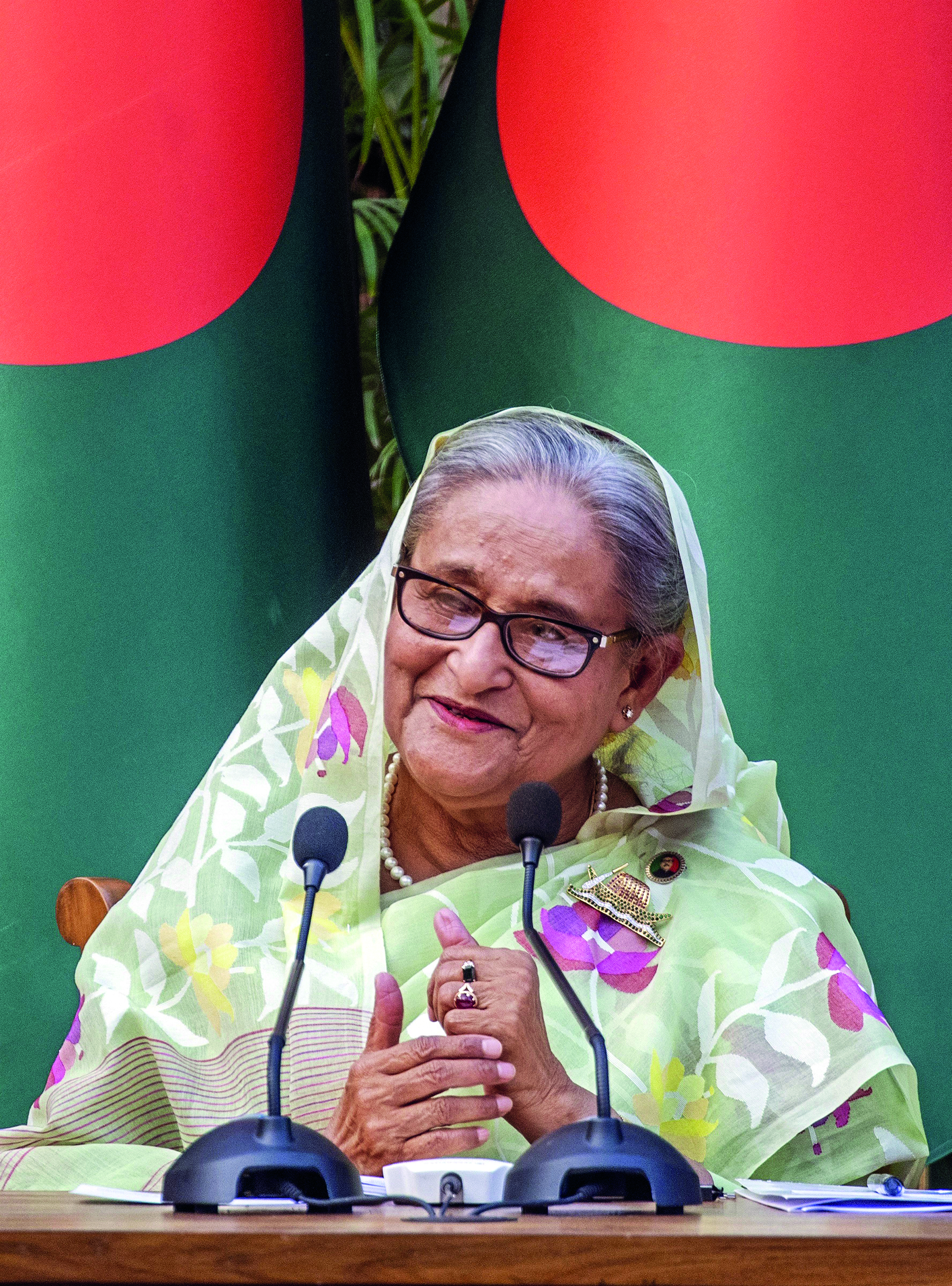Power, panic and a escape: Bangladesh’s political earthquake

Dhaka: Sheikh Hasina, who was elected for a record fourth consecutive term and fifth overall term this year, was always admired by her supporters as an “Iron Lady” before the dramatic development that abruptly ended her 15-year-rule in Bangladesh.
Hasina, who provided stability to the once military-ruled Bangladesh but at the same time criticised as an “autocratic” leader by opponents, was among the world’s longest-serving female heads of government.
The 76-year-old daughter of Bangladesh founder Sheikh Mujibur Rahman had been ruling the strategically located South Asian nation since 2009. She was elected for a record fourth consecutive term in January in an election boycotted by the main opposition party Bangladesh Nationalist Party (BNP) of former premier Khaleda Zia and its allies.
Born in erstwhile East Pakistan (now in Bangladesh) in September 1947, Hasina became active in politics while studying at the University of Dhaka in the late 1960s. She served as her father’s political liaison during his imprisonment by the Pakistani government.
After Bangladesh gained independence from Pakistan in 1971, her father Mujibur Rahman became the president and then prime minister of the country. However, in August 1975, Rahman, his wife and their three sons were assassinated in their home by military officers.
Hasina and her younger sister Sheikh Rehana survived the purge as they were abroad. Hasina, who spent six years in exile in India, was elected as the leader of the Awami League, a party founded by her father.
In 1981, Hasina returned home and became vocal about democracy in the country ruled by the military, which placed her under house arrest on multiple occasions.
In the 1991 general elections, the Hasina-led Awami League failed to secure a majority. Her rival Khaleda Zia of the BNP became prime minister.
Five years later, Hasina was elected prime minister in the 1996 general elections.
Hasina was voted out of office in the 2001 elections but returned to power with a thumping victory in 2008 polls. Khaleda Zia-led BNP has been left in the lurch since then.
Hasina escaped an assassination bid in 2004 when a grenade exploded at her rally.
Soon after coming to power in 2009, Hasina set up a tribunal to try 1971 war crimes cases. The tribunal convicted some high-profile members of the opposition, sparking violent protests.
Jamaat-e-Islami, an Islamist party and a key ally of BNP, was banned from participating in elections in 2013. BNP chief Khaleda Zia was sentenced to 17 years in prison on corruption charges.
The BNP boycotted the 2014 elections but joined the one in 2018, which party leaders later said was a mistake, alleging that the voting was marred with widespread rigging and intimidation.
In the 2024 elections, the BNP and its allies boycotted the votes, demanding polls under a non-party caretaker government. They alleged that Hasina cannot deliver credible voting.
The polls were fought by 27 political parties, including the parliamentary opposition Jatiya Party. The rest were members of the ruling Awami League-led coalition, which experts dubbed as the “satellite parties.”
Over 300 protesters were killed in violence during the protests that led to her dramatic ouster.
Hasina presided over one of the world’s fastest-growing economies and improved living standards in the South Asian nation in the past 15 years. The NEWSNEXTBD.com dubbed her the “Iron Lady” several years back and since then it was used by the Western media to refer to her.
Her supporters credit Hasina with humming development projects and providing stability in the country, which has witnessed military rule for years.
Hasina won praise for the handling of the world’s biggest refugee crisis as over a million Rohingyas have taken shelter in Bangladesh after fleeing for their lives in neighbouring Myanmar to evade persecution after a 2017 army crackdown at their homeland.
Hasina is also credited for skilfully negotiating the rival interests of India and China as Bangladesh is virtually sandwiched between the two Asian giants. She got the support of both the big neighbours and Russia ahead of the elections.
Bangladesh’s per capita income tripled since Hasina took power in January 2009 while its gross domestic product (GDP) clocked at a growth rate of 7.28 per cent last year.
The country of nearly 170 million people has achieved near self-sufficiency in food production and raised average life expectancy to levels higher than neighbouring India.
People close to her used to say that the premier
is a “workaholic” and she
performs the daily Islamic
rituals.



